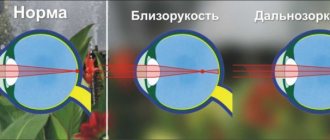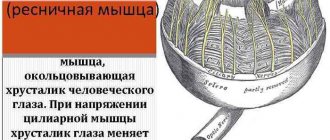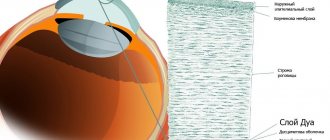VVK in the Ministry of Internal Affairs vision
I am interested in the visual impairment of the VVC when entering the Institute of the Ministry of Internal Affairs at the Faculty of Law Enforcement, specializing in Criminal Investigation Officer. Will the medical commission allow me to pass, given that visual acuity in one eye is less than one, to be more precise, approximately 0.65-0.7?
This is a question not for lawyers, but for doctors.
Tell me, is it possible to pass the VVK for admission to the Ministry of Internal Affairs of Russia with vision - 1.5 at the Faculty of Legal Support of National Security (group 2)
Hello! Yes, you can. Quote: Order of the Ministry of Internal Affairs of Russia dated July 14, 2010 No. 523 “On the procedure for conducting military medical examination and medical examination in the internal affairs bodies of the Russian Federation and the internal troops of the Ministry of Internal Affairs of the Russian Federation” Appendix No. 1 to the Instructions on the procedure for conducting military medical examination examination and medical examination in the internal affairs bodies of the Russian Federation and internal troops of the Ministry of Internal Affairs of the Russian Federation Requirements for the health status of certain categories of citizens Purpose group 1 - types of activities: fight against organized crime, service in special and special purpose police units, patrol service police and road patrol service of the State Road Safety Inspectorate (serving in the open air), security of sensitive objects and escort of special cargo, service in detention groups of centralized security points of private security, management of operational vehicles, dog detection and patrol dog service, fire extinguishing fires (employees of the federal fire service of the Ministry of Emergency Situations of Russia - personnel on duty guards (shifts) of fire departments (except for drivers), directly involved in extinguishing fires), faculties of educational institutions of the Ministry of Internal Affairs of Russia, training specialists for units for combating organized crime, road patrol services; 2nd group of missions - types of activities: operational search and operational search services, special police services at sites, driving vehicles (except for operational vehicles), fire extinguishing (employees of the federal fire service of the Ministry of Emergency Situations of Russia - drivers, personnel providing fire extinguishing and shifts on duty (except for dispatch personnel), as well as the command staff of educational institutions of the Ministry of Emergency Situations of Russia), faculties of educational institutions of the Ministry of Internal Affairs of Russia, training specialists for operational search units, units, criminal police and public security police (except for those assigned to mission groups 1 and 2) , investigative, forensic units, special technical measures units; 3rd purpose group - types of activities: service in the criminal police and public security police (except for those assigned to purpose groups 1 and 2), investigative, forensic, military mobilization, headquarters (duty units), personnel services, State Courier Service of the Russian Federation — correspondence delivery service, special transportation, service in the second special departments, technical service, operational and technical measures service, faculties of educational institutions of the Ministry of Internal Affairs of Russia, Ministry of Emergency Situations of Russia, training specialists for financial and economic units, communications and information security units, information centers, non-departmental units security, legal services, international cooperation units, psychological support units, migration service units, the Federal Fire Service of the Ministry of Emergency Situations of Russia (personnel of bodies and units of state fire supervision, fire prevention, fire testing laboratories, forensic institutions, dispatch staff of force control centers and fire communication points of detachments and fire departments); 4th group of purposes - types of activities: Directorate of the Federal Migration Service of the Russian Federation, logistics service, economic service, military support service, certain types of activities: medical, financial and economic, control and audit and construction; service in information and computing centers, private security service (except for service in detention groups of centralized security points), service in research and educational institutions, service in secretariats, legal services, press services, service in the editorial offices of newspapers and magazines, service in motor transport fleets and other special police institutions, the State Courier Service of the Russian Federation (except for those assigned to the 3rd purpose group), the Federal Fire Service of the Ministry of Emergency Situations of Russia (all types of activities, except those assigned to the 1st, 2nd and 3rd purpose groups).
See also: A guide to Russian history for migrants
I would like to know with what kind of vision they are hired into the structures of the Ministry of Internal Affairs. I just have 4...and if the ophthalmologist at the VVC doesn’t give me the go-ahead to serve. Can I somehow appeal this? After all, I served in the army with such vision!
Contact the personnel department of the Ministry of Internal Affairs of your city, take a referral to the VVK and try to see an ophthalmologist at the first office. He will give you a conclusion about suitability. They have an internal order that you are unlikely to be able to appeal. Currently, there are many opportunities to correct your vision, get treatment and try to undergo VVC again.
Is it really possible to pass the VVK to enter the Institute of the Ministry of Internal Affairs with vision of 3.5. Everything else is normal in terms of health. And is it possible, if anything, to pass a medical examination using night lenses? The operation cannot be performed because not yet 18 years old.
Go to the HR department and take a referral to VVK. The first office you go to is the ophthalmologist. He will issue a determination of fitness for service. They have an internal order and a tolerance scale with or without points. You cannot undergo a medical examination with lenses.
Is it possible with vision of 2.75 to pass the VVK for admission to a Ministry of Internal Affairs university to become an investigator, group 2?
Is it possible with vision of 2.75 to pass the VVK for admission to a university of the Ministry of Internal Affairs to become an investigator, group 2? You can pass,
Can I serve in the Ministry of Internal Affairs after vision correction? The ophthalmologist at the VVC refused.
If you refuse, you won’t be able to. need to undergo a medical examination
I used to work in the Ministry of Internal Affairs. According to the VVK there was a B-4 vision restriction; previously it was allowed. Then I quit of my own free will. There were no violations of any kind. Recently I wanted to recover, but I didn’t pass the commission because they took information about my vision when I passed it before. 3 years ago I had laser vision correction and now I have one. But the IHC said that this does not in any way affect the outcome of the commission. They set it as unusable. Are they right? Or is there any way to challenge this?
Hello. You have the right to challenge this.
You can challenge it, but surgery to restore vision entails restrictions on work activity, and physical activity is prohibited. If the employer provides medical conclusion, there is no chance of recovery. Are required to offer another job if there are vacancies.
My son is going to enter the KU of the Ministry of Internal Affairs, 3rd group of destination. Is there a chance to undergo VVC if vision is 2 in both eyes? There are no other health problems.
No, with such vision it will not work.
Will I pass the Military VVK in the Military VV of the Ministry of Internal Affairs for contract service, if my vision is 4 and there is a problem with shades of green.
Hello! You may not be able to pass, unfortunately.
Hello! It depends on the decision in the conclusion of the IHC. Talk to the IHC secretary about your problem.
Please tell me, to enter the Ministry of Internal Affairs, when passing the VVC as an ophthalmologist, vision must be one hundred percent? Or are there slight deviations possible? For example, my vision is 0.5, and all other doctors should miss it, do I have a chance to undergo VVC?
Ekaterina, good evening! It all depends on the position you are applying for. Sorry, but the question is, rather, not for lawyers, but for the specialists of the MIA. I will give you a link to the site and the topic where the specialist of the MIA of the Ministry of Internal Affairs answers.. Try asking your question there.. Good luck! https://www.police-russia.ru/showthread.php?t=72464 Sincerely, Kharchenko O.V.
I WORK IN THE MIA, THE VVK SENDS FOR A PENSION DUE TO DISABILITY, ACCORDING TO VISION, HOW TO CALCULATE WHAT PENSION I WILL RECEIVE. MANY OF US RECEIVE UP TO 30 T.
Take a calculator and calculate The right to a disability pension in accordance with Article 19 of the Law of the Russian Federation of February 12, 1993 No. 4468-1 is granted to persons who have become disabled if the disability occurred during their service or no later than three months after dismissal from service, or if the disability occurred later this period, but as a result of injury, contusion, injury or illness received during the period of service. The group and causes of disability, the time of onset and period of disability, as well as the degree of limitation of the ability to work are established by federal institutions of medical and social examination. Article 21. Disabled people, depending on the cause of disability, are divided into the following categories: a) disabled due to military trauma; b) disabled persons due to an illness acquired during the period of service. The disability pension in accordance with Article 22 is established in the following amounts: a) for disabled people due to military injury of groups I and II - 85 percent, group III - 50 percent of the corresponding amounts of monetary allowance provided for in Article 43; b) disabled people due to illness acquired during military service, groups I and II - 75 percent, group III - 30 percent of the corresponding amounts of monetary allowance provided for in Article 43. Calculation of disability pension. Formula for calculating a disability pension (Article 22 of the Law of the Russian Federation of February 12, 1993 No. 4468-1) Pension = (salary according to position + salary according to rank + bonus for length of service) × 56% × pension amount in percentage established by Article 22 c according to the disease and disability group Example. Senior detective (salary by rank = 16,500 rubles), police major (salary by rank = 11,500 rubles), length of service - 14 years (percentage increase for length of service = 20%). Group 3 disability from military trauma has been established (wounded in the line of duty or in combat). Pension = (16,500 + 11,500 + (16,500 + 11,500) × 20%)) × 56% × 50% = 9,408.00
See also: Administrative liability for violating traffic rules of the Republic of Belarus
Requirements for various types of law enforcement activities
In accordance with the Order of the Ministry of Internal Affairs No. 190, more stringent requirements are imposed on applicants than on existing employees, including when testing vision.
After passing the commission, depending on the existing restrictions, the candidate is assigned a destination group, which determines the possibility of entering a particular structure of the Ministry of Internal Affairs.
1 group
Applicants assigned to group 1 can work in all law enforcement agencies whose activities involve a high risk (SOBR, FSB). In rapid response units, detention groups (for example, central security points), special forces units, police and traffic police. Provided that:
Vision when passing the MIA VVK
Alena, this is always decided individually, the legislation does not stipulate what the level of vision of candidates should be before and after surgery, there is only what it should be no less than, this is indicated in the Order of the Ministry of Internal Affairs of the Russian Federation of July 14, 2010 No. 523 “On approval of the Instructions on the procedure for conducting a military medical examination and medical examination in the internal affairs bodies of the Russian Federation and the internal troops of the Ministry of Internal Affairs of the Russian Federation" (Next - Schedule of Diseases and TDT) In accordance with paragraph “d” of Article 34 of the Schedule of Diseases, health restrictions occur upon diagnosis “myopia of any eye in one of the meridians is more than 3.0 diopters and up to 6.0 diopters, farsightedness of any eye in one of the meridians is more than 6.0 diopters and up to 8.0 diopters or astigmatism of any kind in any eye with a refractive error difference in two main meridians more than 2.0 diopters and up to 4.0 diopters" If this diagnosis is present, the newly accepted candidate for service is fit for service in the 4th mission group (fitness category B-4 is fit for service with minor restrictions). Accordingly, -3 and below is category “A”. In accordance with the requirements of paragraph “a” of the TDT for citizens who have not previously served in the internal affairs bodies and internal troops, entering service and study in educational institutions: Visual acuity without correction for distance is not below 0.6/0.6 - for positions of 1 purpose groups and with a correction of 1.0/1.0. Visual acuity without correction for distance is not lower than 0.3/0.3 - for positions of 2 purpose groups and with correction 1.0/1.0.
Order of the Ministry of Internal Affairs of the Russian Federation dated July 14, 2010 No. 523 “On approval of the Instructions on the procedure for conducting military medical examination and medical examination in the internal affairs bodies of the Russian Federation and the internal troops of the Ministry of Internal Affairs of the Russian Federation” (Hereinafter - Schedule of diseases and TDT) In accordance with paragraph “d” of Article 34 of the Schedule of Diseases, health restrictions occur with a diagnosis of “myopia of any eye on one of the meridians is more than 3.0 diopters and up to 6.0 diopters, farsightedness of any eye in one of the meridians is more than 6.0 diopters and up to 8 .0 diopters or astigmatism of any kind in any eye with a difference in refraction in the two main meridians of more than 2.0 diopters and up to 4.0 diopters" If this diagnosis is available, the newly accepted candidate for service is fit for service in the 4th group of assignment (fitness category B -4 fit for service with minor restrictions). Accordingly, -3 and below is category “A”. In accordance with the requirements of paragraph “a” of the TDT for citizens who have not previously served in the internal affairs bodies and internal troops, entering service and study in educational institutions: Visual acuity without correction for distance is not below 0.6/0.6 - for positions of 1 purpose groups and with a correction of 1.0/1.0. Visual acuity without correction for distance is not lower than 0.3/0.3 - for positions of 2 purpose groups and with correction 1.0/1.0.
Order of the Ministry of Internal Affairs of the Russian Federation dated July 14, 2010 No. 523 “On approval of the Instructions on the procedure for conducting military medical examination and medical examination in the internal affairs bodies of the Russian Federation and the internal troops of the Ministry of Internal Affairs of the Russian Federation
and get an answer in 1 minute!
Suitability categories
Knowing the existing categories of medical suitability, you can understand whether a person can serve in the Ministry of Emergency Situations and the police. The categories describe in which military unit a citizen can serve:
- Category A. There are no restrictions here. This category is assigned when there are no health problems at all. It is these people who can count on a place in the elite troops and on the submarine. There are two subcategories here. A1 – these people do not have any health problems. During the medical examination, no serious illnesses were recorded. A2 - this subcategory is assigned to those who have had concussions or fractures in the past; this is not an obstacle to serving in the elite troops.
- Category B. Indicated for minor health problems. The restrictions apply only to service in certain types of troops. This group is also divided into several subcategories. B1 - a person is suitable for service in special forces companies, naval and border troops. B2 - you can serve on a submarine or become a member of the crew of a military vehicle. B3 - allowed to serve in the internal units of the Ministry of Internal Affairs, as well as to be one of the crew members of combat vehicles. B4 - with this category, people can be called up to guard military units, as well as engage in radio communications.
- Category B. This mark means that the person has serious illnesses, which are 100% exempt from service in peacetime. The person immediately receives a military ID and is written off to the reserves, but during the war he can be called up to complete the 2nd line of units.
- Category D. This list includes all those conscripts who are only temporarily unable to serve for health reasons. Usually a deferment is granted for up to a year, but after that additional examination will be required. The reason for the delay may be fractures, dystrophy and excessive weight. Everything that can be corrected in a certain time.
- Category D. Given if a person is completely unfit for military service. He receives a military ID with the corresponding mark, in addition, a special stamp is placed in the passport. This group is given in the absence of an organ, after a stroke, with HIV infection and other serious illnesses.
Many young people do not even suspect that certain categories are a big obstacle to employment in quite prestigious positions. First of all, we are talking about groups G and D. Citizens without military service are not accepted into the Ministry of Emergency Situations, the Ministry of Internal Affairs, security structures and other units that belong to law enforcement agencies.
It is a common belief that a person not admitted to military service cannot obtain a driver’s license. This is by no means true; most diseases are not an obstacle to driving. The restriction mainly applies to people who are color blind or have mental disabilities.
You can find many lawyers who help conscripts defend their rights, including challenging the decision of a special medical commission.
Vision requirements for police
Hello! Please tell me, I was in the 3-4th fitness group due to my eyesight.
Visual acuity was / IOP OD: without correction 0.08 with correction Sph -2.70 Su -1.00 ax 80 = 1.0 / 15 mm. OS: without correction 0.08 with correction Sph -2.50 = 1.0 / 17 mm.
Diagnosis: OU Low myopia, OD Complex myopic astigmatism.
Operation performed: OD: LASIK Date: 09/16/10
OS: LASIK Date: 09/16/10
At discharge Visual acuity OD: uncorrected 1.0 OS: uncorrected 1.0
I had my eyesight checked on 10/22/10, and both eyes were 1.0.
How long after LASIK surgery can I undergo a military medical examination? Is it possible for me to get 1 health group now?
Thank you very much in advance!
It seems to be 1.0. If I get you right
Visual acuity OD: uncorrected 0.08 with correction Sph -2.70 Su -1.00 ax 80 = 1.0 OS: uncorrected 0.08 with correction Sph -2.50 = 1.0
to GrossMaister I would like to ask you a couple of questions for clarification: 1) is the fundus checked only/including to detect surgical intervention/other manipulations with the eye? 2) example: if in the 10th grade my vision was perfect, then it worsened (-2 diopters in both eyes), I had Lasik surgery, came to the VVC, the doctor told me: “you’ve got it, give me an “epicrisis” and the examination results before the operation!”, and I will provide him with a medical card with “ideal” data for the 10th grade, because all the others, if there were any, are lost, can I count on the highest group of fitness for vision?
to GrossMaister “because The examination will be carried out taking into account your preoperative history, therefore, it is quite logical that the ophthalmologist asked you for your history.”
Anamnesis - information about the patient’s living conditions that preceded the disease, as well as the entire history of the development of the disease. Most likely, the VVC doctor may request the results of the examination that were done in the clinic before vision correction surgery or an outpatient card with old data? What happens if it is impossible to provide such data?
———- Reply added at 15:23 ———- Previous reply was at 15:04 ———-
Also, dear GrossMaister, I would like to understand the logic of “duplicating/taking into account” old characteristics: for example, if I have a “weak” PCRD (laser coagulation was performed) or mild myopia, and I do not see “one” (there is slight deviations in visual acuity), then why is surgical intervention bad (except for the risk and the presence of surgical intervention), if I have the same mild myopia/"treated dystrophy" + good vision? Correct me if I’m wrong, but is myopia (there is no such term in the order on VVC, apparently it’s called differently there) or mild “treated” degree PCRD is an obstacle to not receiving at least the 2nd group?
Other publications:
- Tax on the simultaneous sale and purchase of an apartment Tax on the sale and purchase of housing by minors If the apartment was sold in shares under different agreements, then each owner has the right to a deduction for the sale of 1 million rubles. You can also take advantage of property deductions when purchasing an apartment. You […]
- Order of the Ministry of Internal Affairs of the Russian Federation 154 dated 01042011 Which order of the Ministry of Internal Affairs of Russia was canceled after Order No. 664 came into force? Hello! Recently, Order No. 664 of the Ministry of Internal Affairs of Russia dated August 23, 2017 came into effect, according to which traffic police officers stopped issuing certificates of road accidents. In Appendix No. 2 to the said [...]
- Rosprirodnadzor order 479 dated 01082019 The order added 571 new objects to the GRORO: 12 objects Altai Territory 4 objects Amur Region 6 objects Arkhangelsk Region 5 objects Astrakhan Region 2 objects Belgorod Region 2 objects Bryansk Region 2 objects Vladimir Region 17 […]
- Validity period of a temporary employment contract Features of the probationary period for a temporary employment contract Employment contracts with employees can be concluded both on a permanent and temporary basis. In other words, for an indefinite and for a certain period. Temporary employment contract for [...]
- Is maternity leave included in the length of service in the civil service? Is maternity leave included in the length of service in the state civil service? Parental leave is counted towards the general and continuous work experience, as well as into the work experience in the specialty (except for cases of early assignment of a labor pension […]
- Order of the Ministry of Education on the introduction of the Federal State Educational Standard before Russian education FEDERAL PORTAL Home Documents No. 1155 dated 10/17/2013 MINISTRY OF EDUCATION AND SCIENCE OF THE RUSSIAN FEDERATION (Ministry of Education and Science of Russia) Registered with the Ministry of Justice of Russia dated November 14, 2013 N 30384 On approval of the federal […]
Do they hire people with poor eyesight to join the police? Requirements for hiring
When entering the law enforcement agencies, candidates undergo a rather strict selection process, including based on health conditions, in this regard, many people ask whether people with poor eyesight and eye diseases are hired into the police.
According to statistics, about 37% of applicants are eliminated at the stage of the medical commission. Poor eyesight can be a serious obstacle to employment in the police.
What eye diseases cannot pass a medical examination?
Applicants with serious visual impairments, as well as progressive eye diseases, are not allowed to serve in the police:
- vision below 6 (with myopia), farsightedness - over 8;
- astigmatism more than 4 diopters;
- complete loss of vision in one eye, with the second eye below 0.3;
- I degree color vision impairment;
- retinal detachment;
- progressive glaucoma in both eyes;
- consequences of injuries, burns of the cornea, contributing to progressive loss of vision;
- strabismus, in cases where the applicant cannot clearly see objects with both eyes;
- degenerative progressive changes in the fundus of the eye.
Also, you may not be allowed to serve in law enforcement agencies if you have temporary visual impairment associated with a previous illness or injury.










